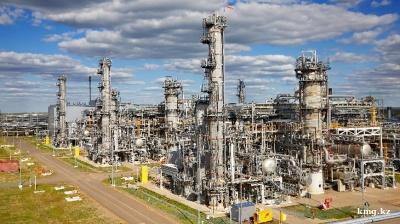National Bank of Moldova (BNM) decided to increase the monetary policy interest rate by 3pp to 21.5%, with the same interest rate corridor of +/-3pp, at its August 4 monetary board meeting. Furthermore, the required reserve ratios will increase in two steps, from 34% to 40% for local currency liabilities and from 39% to 45% for foreign currency liabilities.
Consumer price inflation exceeded 30% y/y and the industrial price inflation was not far from this in June. The inflation outlook is gloomy as the high gas price (still rising) has not entirely passed through into consumer goods’ prices.
The decision, the BNM explained, aims at tempering the rapid growth of consumer prices, mitigating the secondary effects of supply shocks, stimulating financial intermediation in the national currency and saving against consumption, balancing the foreign trade, as well as anchoring inflationary expectations.
However, such high monetary policy and inflation rates are likely to have more negative side effects associated with them, compared to the standard monetary policy operating in the range of more common interest rates.
Moldovan banks can now place their excess resources overnight with the BNM at the interest rate of 18.5%. But the deposit interest rates paid by the banks were, as of June (latest data available) lower than 11% for the most common six to 12 month maturity. The deposit facility offered by BNM at that time, in June, was 15.5% — resulting into an interesting arbitrage spread.
At first sight, the deposit facility seems a great opportunity for Moldovan banks (and a high cost incurred by the BNM). But the huge required reserve ratios tilt the balance in favour of the BNM and reduce the benefits of the banks with excess liquidity (while deepening the troubles of the cash-strapped banks).
As an effect, the hawkish policy has a significant role in discriminating in the short term in favour of the banks with abundant liquid resources against the banks that placed all their resources in long-term loans, tending to aggravate the potential weaknesses of smaller-sized banks.
The latest inflation data shows annual inflation reached 31.8% y/y in June, up from 29.0% y/y in May.
The price of some food goods decreased on a seasonal trend in June, but on an annual basis average food prices rose by 34.1%. The rising cost of energy remains, however, the main driver for Moldova’s surging inflation; the price of natural gas quadrupled as of June compared to one year earlier.
News

Ukrainian military strike for first time disrupts operations of Western oil majors
Drone attack damage caused to Russian gas processing plant forces scaling back of output at Kazakh field partly owned by Chevron, Shell and Eni.
_Foto2_Divulgação_Foresea_(1)_1761062969.jpg)
Petrobras secures controversial Amazon drilling licence ahead of COP30 climate summit
Brazil's Petrobras has obtained authorisation to drill an exploratory well near the mouth of the Amazon River, sparking fierce criticism from conservationists just weeks before Brazil hosts UN climate talks.
_1761050969.jpg)
Revolut clears final hurdle for Mexico banking debut
Revolut has received final authorisation from Mexico's banking regulator to commence operations, positioning the London-based fintech to launch services within weeks.

Hungary to challenge EU’s ban on Russian gas imports, vows to block REPowerEU
Hungarian Foreign Minister Peter Szijjarto says the European Council’s decision to ban Russian fossil fuel imports by 2027 could jeopardise Hungary’s energy security.




